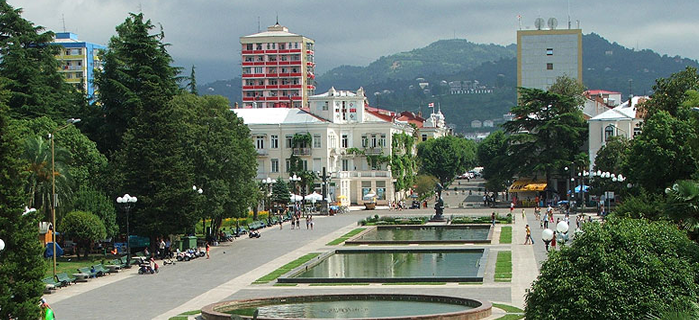Community and faith-based leaders from around the world came together to share insights on how interfaith relations can encourage peace and mutual understanding at the International Forum on Religion and Peace in Batumi, Georgia.
Social Inclusivity in Georgia
With the country's history of ethnic conflict in the 1990s, Georgia was a meaningful place to hold the Forum. While ethnic Georgians make up around 84 percent of the population, there are large minority Armenian (5 percent) and Azerbaijani (6 percent) populations that have traditionally been targets of discrimination.
More recently, with the dramatic increase in the power and influence of the Georgian Orthodox Church in society, Orthodox Christianity is increasingly linked for many people with the concept of Georgianness. There has been a great deal of tension in Georgian society about the criteria of membership and how to consolidate this ethnic and religious definition of Georgian identity with a civic conception of citizenship.
Citizen Activists Advocate for Minority Rights
Several alumni of the Open World program committed to working with ethnic and religious groups in Georgia shared their own experiences at the Forum. The Open World initiative brings young leaders from Eurasian countries working on minority rights to the US for 10 days of intensive exchanges with civil rights organizations to study social inclusivity. The Open World groups from Georgia in particular have included representatives of minority and religious NGOs and communities and also ethnic Georgians involved in citizenship issues.
"I think that it's time for all religions to tell the world to stop the bloodshed and killing of children in places like Iraq, Syria, and Palestine, and to show respect for God's creation," Tariel Nakaidze, an organizer of the event, chairman of the Union of Georgian Muslims, and an Open World alumni, told the Georgian news agency, IPN.
Alumna Samira Bairamova of Mercy Corps Georgia shared with the Forum how the insights she gained from her US professional exchange experience might help to build tolerance for minorities in Georgia. She works with Mercy Corps to help people survive and thrive after conflict and crisis.
Adam Shantadze, head of the International Society of Muslims of Georgia, spoke about emphasizing the love, peace, and mutual respect found in the Islamic faith to encourage greater understanding of people who practice Islam in Georgia.
The Open World participants finished their training in the US with new ideas on how to improve the delivery of social services to ethnic and religious minorities in order to help these groups participate more fully in community and economic life in Georgia.
About the Open World Program
The Open World Program is funded by the US Congress and administered by the Open World Leadership Center. The Open World Leadership Center has enabled more than 20,000 current and future leaders from Georgia, Russia, Ukraine, and Eurasia to meaningfully engage and interact with Members of Congress, Congressional staff, and thousands of other Americans, many of whom are the delegates' direct professional counterparts. These emerging leaders experience in-depth programming in themes of transnational impact through an intensive professional exchange visit, including: human-trafficking prevention, government and court transparency, nuclear nonproliferation, and environmental protection.

